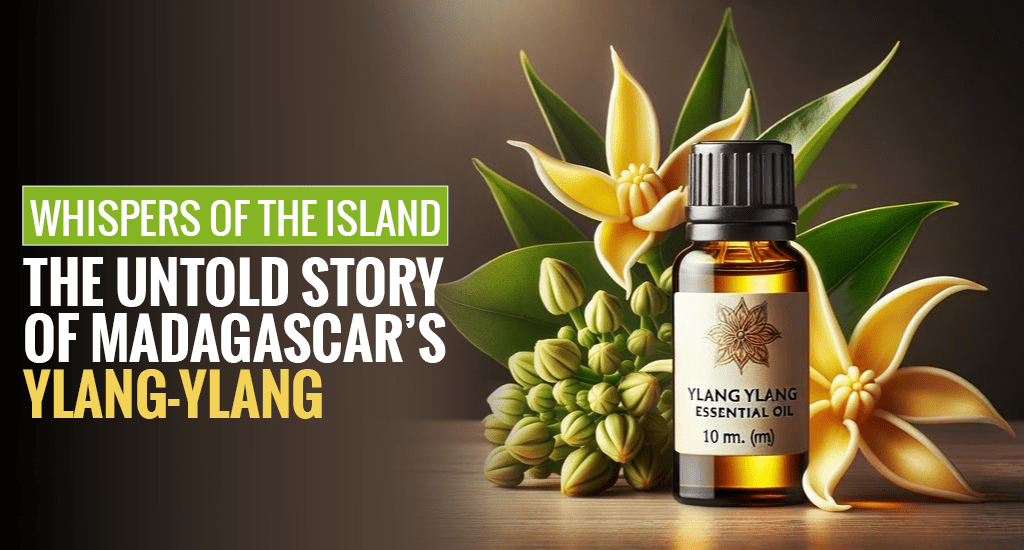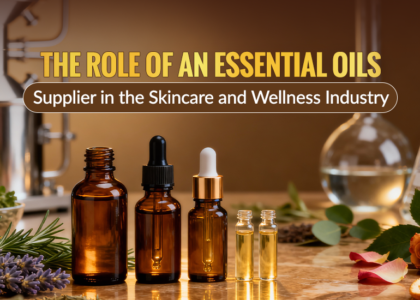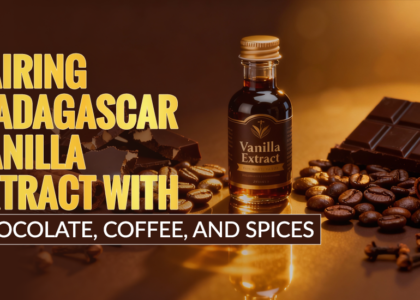Ylang-Ylang is a flower that grows in Madagascar’s green landscape where the land meets the Indian Ocean. Its essence is as timeless as the sunrise. It is more than just a flower; it represents a soul, music carried by the breeze, and a fragrance that captures the island’s essence.
The farmers of Madagascar have been growing these delicate petals with care for generations. They walk the toughest path between trees and sky. Ylang-Ylang blossoms are not plucked quickly. Instead, they are gathered at sunrise when their aroma is the strongest, and the island is alive with its fragrance.
A LAND UNLIKE ANY OTHER:
In the southern hemisphere lies Madagascar, an island with ancient, wild, and uniquely diverse plants and animals. The soil possesses volcanic power, and the air carries the aroma of ocean salt and monsoon rains. From this captivating land matures Ylang-Ylang, a flower whose name means “flower of flowers.”
However, not all Ylang-Ylang is the same. While Indonesia produces it in large quantities, Madagascar nurtures it through its pure farming methods.
GROWN BY HANDS THAT HOLD THE EARTH:
Behind every drop are the rough and tough hands of Malagasy farmers. They hold ancient knowledge and protect purity.
In Nosy Be, a small island on the northwest coast of Madagascar, the flowers are hand-picked at sunrise, when their aroma is strongest. No chemicals are used on the roots, and no shortcuts harm the soil. These aren’t industrial fields; they are sacred gardens. Yet, their work is tough. These farmers face unpredictable weather, unreliable markets, and little support. Still, they push on because it is personal.
Because it is their culture, rhythm, and pride.
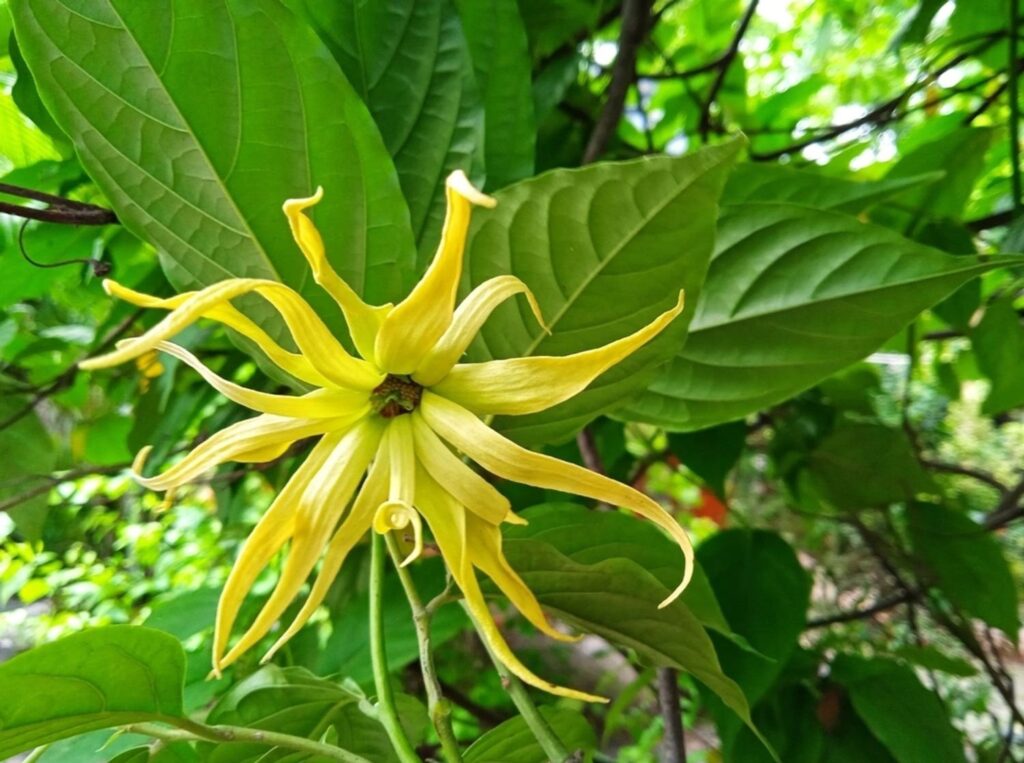
PURITY IN EVERY PETAL:
In contrast to other regions that saturate the soil with pesticides and chemical residues Madagascar’s ylang ylang is pure. Oils from Madagascar, due to its untouched biodiversity and low-input farming, often contain a higher concentration of active compounds. They are richer in eugenol, deeper in linalool, and full of nature’s own miracle.
What you smell reflects the essence of the plant. Raw, alive and untouched.
THE PROCESS:
Ylang Ylang essential oil is extracted through steam distillation, a method widely recognized for preserving the delicate aromatic compounds of Cananga odorata flowers. Each alembic unit typically processes approximately 100 kilograms of freshly harvested Ylang Ylang blossoms, yielding around 2.5 kilograms of essential oil, though actual output may vary based on flower quality, harvest timing, and distillation parameters.
The distillation is conducted in daily 8-hour shifts, with weekly output per alembic ranging from 8 to 12 kilograms. This production rhythm ensures optimal oil quality while maintaining equipment efficiency and labor sustainability.
All flowers are sourced directly from registered farmer cooperatives, with full traceability protocols in place. The procurement model emphasizes fair compensation across the value chain, ensuring that each stakeholder—from cultivator to processors is equitably rewarded. This approach supports both ethical sourcing and community upliftment, aligning with global standards for sustainable natural product supply chains.
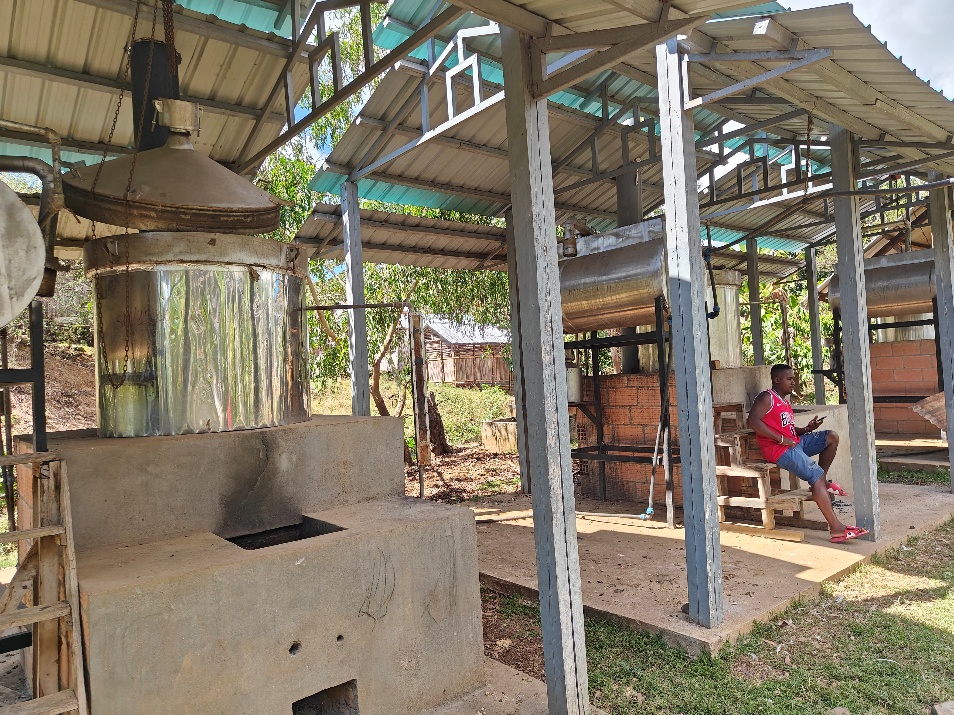
THE CHEMISTRY OF YLANG-YLANG:
Behind its fragrance lies a scientific cooperation of compounds:
- Linalool brings floral freshness.
- Germacrene-D adds depth and warmth.
- β-Caryophyllene contributes soft spiciness.
- Benzyl acetate and geranyl acetate infuse sweet, fruity notes.
Together they compose the fragrance that is uplifting and calming, soothing and serene.
GRADES OF YLANG-YLANG:
It is labelled according to its ranking during distillation process:
- Ylang Ylang Extra – Linalool 15-24%. Density Min 0.940 g/ml
- Ylang Ylang Grade 1 – Linalool 12-19%. Density Min 0.930 g/ml
- Ylang Ylang Grade 2 – Linalool 4-9.5%. Density Min 0.920 g/ml
- Ylang Ylang Grade 3 – Linalool 0.6-4%%. Density Min 0.910 g/ml
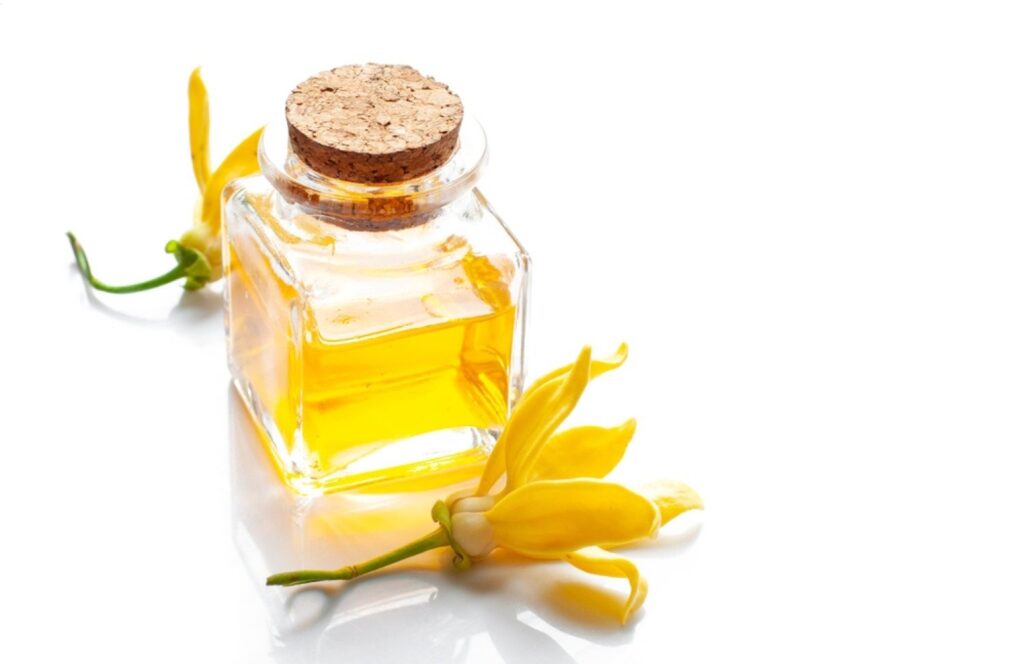
USES:
Used in perfumes and cosmetics for its deep, exotic floral note, Ylang-Ylang Oil enhances fragrances, lotions, creams, and hair care products. It provides calming and relaxing effects in aromatherapy and spa blends, and adds long-lasting scent to soaps, shampoos, and deodorants. In small amounts, it is used as a flavoring agent in liqueurs and confectioneries, and is valued in wellness products for stress relief, circulation support, and skin care.
CONCLUSION:
Choosing robust Madagascar is selecting purity. You are purchasing more than simply an essential oil when you select Robust Madagascar’s Ylang Ylang. You are honoring the island’s culture, helping its farmers, and catching a scent that is unmatched elsewhere. The golden drop that brings Madagascar’s pulse to the globe is nature’s poetry in a bottle. Backed by the island’s unique biodiversity and traditional cultivation methods, ylang ylang continues to meet the high standards of premium wellness, cosmetic, and fragrance industries around the world.

